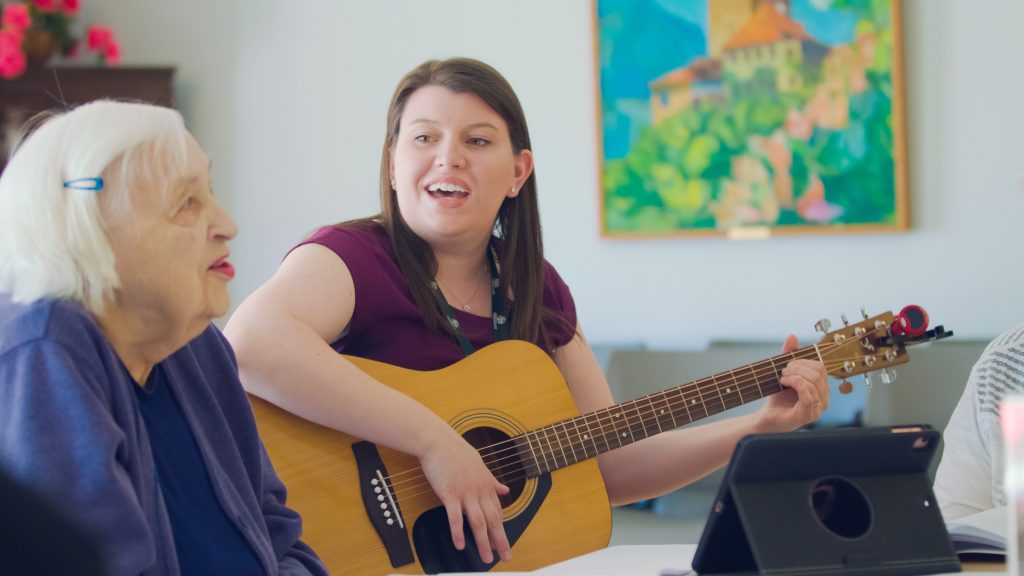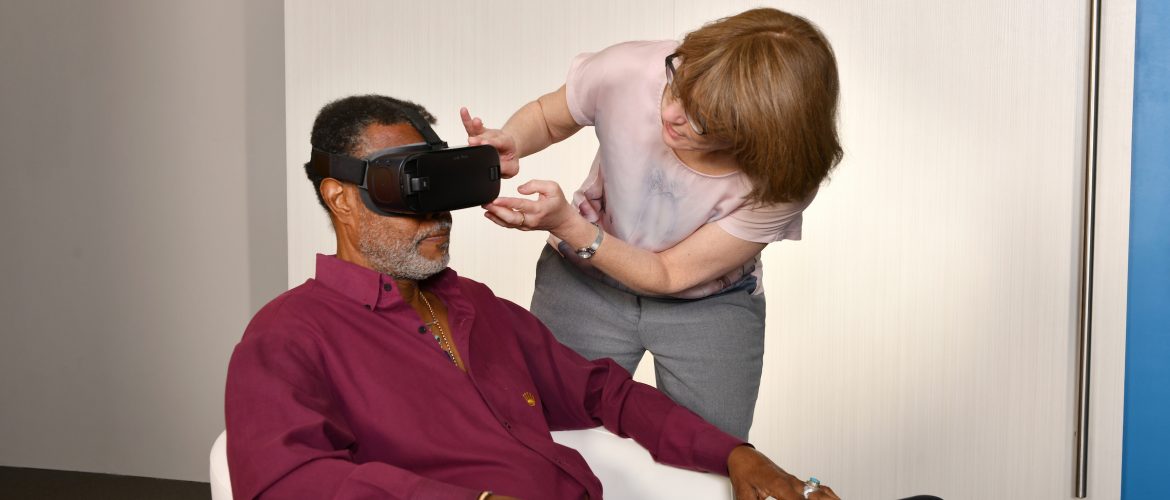Adoption remains one of the biggest barriers to innovation. Even the best ideas can get stuck if provider organizations do not have the capacity to take up something new and put it into practice.
In 2016, the Centre for Aging + Brain Health Innovation (CABHI) formed a strategic partnership with the Seniors Quality Leap Initiative (SQLI), a group of 16 leading long-term care organizations across North America collaborating to improve clinical quality and safety for seniors. Over the past year, CABHI engaged interested SQLI member organizations in an Early Adoption Initiative. The Initiative was designed to facilitate the adoption of CABHI-supported innovations into SQLI member organizations, while also creating a space in which all partners gain a fuller understanding of the factors that enable organizational adoption and innovation.
Through the Early Adoption Initiative, participating SQLI member organizations selected innovations and practices that addressed their needs from the CABHI pipeline, and sought to implement and adopt them. The selected innovations spanned a dance program for older adults, to a seniors’ peer support group, to an empathy-building virtual reality program for dementia care staff, among others.

A musician facilitator and older adult enjoy the Java Music Program, part of the Java Group Programs.
Five SQLI organizations participated: Actionmarguerite (Winnipeg), CapitalCare (Edmonton), the Perley and Rideau Veterans’ Health Centre (Ottawa), San Francisco Campus for Jewish Living, and Westminster Communities of Florida.
CABHI supported the organizations in selecting innovations that met their needs, and facilitated access to these innovations for a period of six to nine months. CABHI also provided on-site implementation training, education, and tools; regular check-ins; monthly community of practice sessions with the cohort; and pre-procurement support for some direct costs associated with accessing the innovations.
The result? A blossoming culture of innovation across the five sites. Organizations benefited from the opportunity to enhance their comfort and capacity to actively implement the innovations. They were also able to experience firsthand what does and doesn’t work when it comes to adopting new innovations, through open dialogue across all participating members within the cohort.
Edmonton’s CapitalCare was one of the participating organizations. CapitalCare’s 2,700 staff provide care and services for nearly 1,400 elderly and disabled adults living in their ten care homes. The organization chose to introduce the CABHI-supported Java Group Programs, which guide long-term care staff in having peer support groups for their residents to help them develop and maintain satisfying interpersonal relationships with each other and decrease social isolation.
“Java is a great innovation,” says Sheron Parmar, Director, Quality and Transformation at CapitalCare. “The results of the implementation were so overwhelmingly positive that CapitalCare committed to implementing the program in six of its main sites. Within the first three months of the Adoption Initiative, we were providing more than 15 Java Clubs throughout six of our centres. We had wonderful support from CABHI to help us do this.”
The initiative also provided some organizations the opportunity to self-reflect.
“This experience reminded our organization that the adoption and sustainability process is more complex than we thought,” says Mario Lemay, Director of Organizational Effectiveness at San Francisco Campus for Jewish Living. “It’s allowed us to pinpoint our challenges and consciously work toward strengthening our capacity in this area,” added Peggy Cmiel, Director of Clinical Operations.
There is now a second round of the Early Adoption Initiative in the works, which will build and expand on the success of the first.
As CABHI sources and accelerates the most promising innovations to shape the future of healthy aging, it’s equally important to make sure healthcare organizations are ready and able to adopt them. Ultimately, the CABHI-SQLI collaboration built a foundational model for a supportive, co-learning partnership that builds and grows receptive cultures of innovation in the seniors’ care sector – ready to respond to, and adopt, tomorrow’s promising innovations.
Featured photo: Project lead Lisa Sokoloff demonstrates Virtual Reality (VR) Dementia Simulation (Baycrest). Her innovation was selected for the Early Adoption Initiative.


